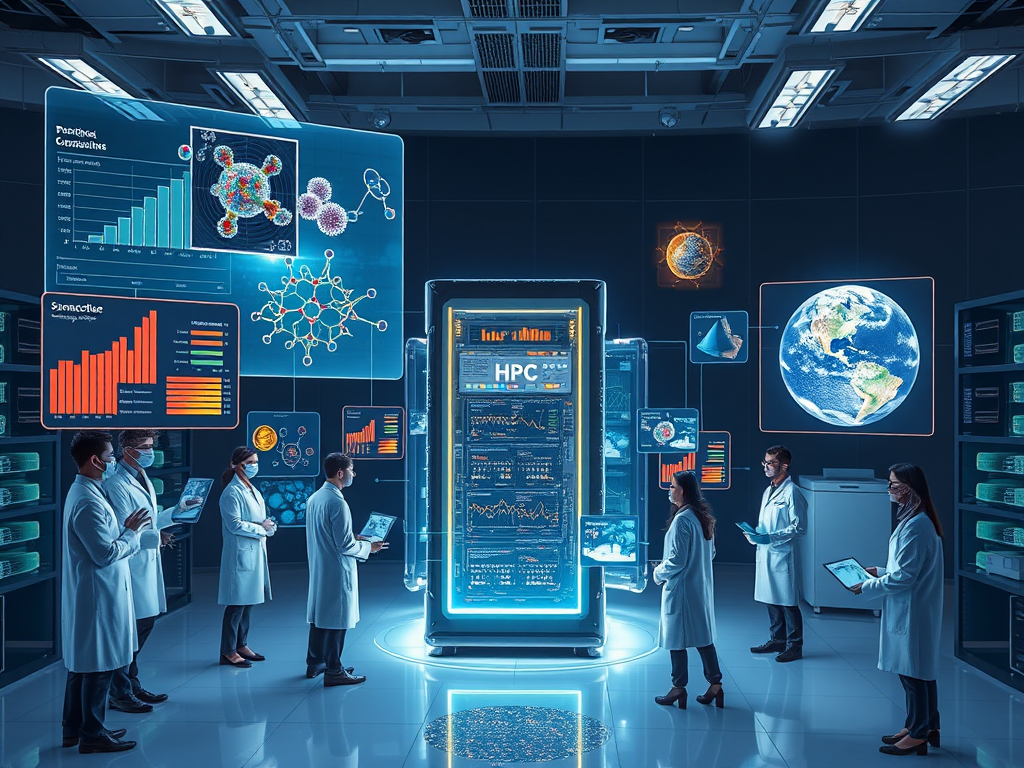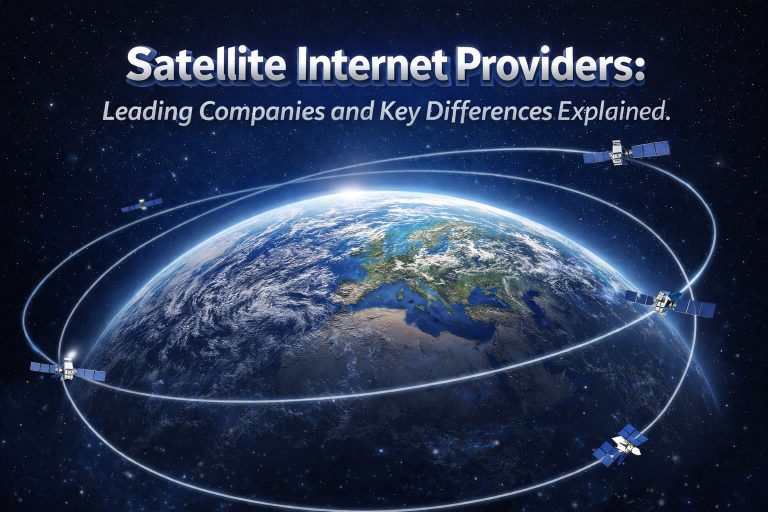
High-Performance Computing (HPC) has transformed the way scientists conduct research by providing access to powerful computers capable of solving complex problems quickly. This technology allows researchers to analyze large datasets, run detailed simulations, and model intricate systems that would be impossible to study otherwise. Here are some important ways HPC is used in scientific research, along with examples and benefits.
1. Climate Modeling
HPC plays a crucial role in climate science. Scientists use HPC to create detailed models of the Earth’s climate systems. These models help predict weather patterns, assess climate change, and understand how human activities impact the environment. For example, researchers can simulate how greenhouse gas emissions affect global temperatures over decades. By processing vast amounts of data collected from satellites and weather stations, HPC enhances the accuracy and reliability of climate predictions. This information is vital for policymakers and communities preparing for climate-related events.
2. Drug Discovery
In the pharmaceutical industry, HPC accelerates the drug discovery process. Developing new medications can be time-consuming and expensive, but HPC allows researchers to run simulations of how drugs interact with biological targets. For instance, scientists can model the structure of proteins and predict how new drugs will bind to them. This capability helps identify promising drug candidates much faster than traditional methods. By using HPC, researchers can also analyze data from clinical trials more efficiently, ultimately reducing the time it takes to bring new treatments to market.
3. Genomic Research
HPC is essential in genomics, where it helps scientists analyze massive amounts of DNA data. Advances in sequencing technology have made it possible to sequence entire genomes quickly, producing terabytes of data. HPC systems allow researchers to perform tasks such as genome assembly, variant calling, and comparative genomics. For example, studying the genetic variations associated with diseases becomes more manageable with HPC, leading to breakthroughs in understanding conditions like cancer and genetic disorders. This research has significant implications for personalized medicine, where treatments can be tailored to an individual’s genetic makeup.
4. Astrophysics
In the field of astrophysics, HPC enables scientists to simulate cosmic phenomena that occur over vast scales and timescales. Researchers use HPC to model galaxy formation, supernova explosions, and the behavior of black holes. These simulations require immense computational power to solve complex equations that describe gravitational forces and other physical laws. By running these simulations, scientists gain insights into the origins of the universe and the behavior of celestial bodies. For example, simulations can help explain how galaxies collide and merge, contributing to our understanding of the universe’s evolution.
5. Materials Science
HPC is pivotal in materials science, where it aids in the discovery and testing of new materials at the atomic level. Researchers can use HPC to model the properties of materials and predict how they will behave under different conditions. This capability is particularly important for developing advanced materials for applications in energy storage, electronics, and nanotechnology. For example, scientists might use HPC to explore the potential of new materials for batteries, leading to safer and more efficient energy storage solutions. By simulating material properties, researchers can identify promising candidates for further experimental study, speeding up the innovation process.
6. Computational Fluid Dynamics
HPC is widely used in computational fluid dynamics (CFD), which involves studying how fluids (liquids and gases) move. This area is crucial for many engineering applications, such as designing aircraft, predicting weather patterns, and understanding ocean currents. With HPC, engineers can run simulations that model fluid behavior in complex scenarios, such as airflow over an airplane wing or water flow in a river. These simulations provide valuable insights that help improve designs, enhance safety, and optimize performance. For example, better understanding of fluid dynamics can lead to more fuel-efficient aircraft and improved weather forecasting models.

7. Social Sciences
In the social sciences, HPC enables researchers to analyze large datasets from surveys, social media, and other sources. This analysis helps in studying social behaviors, understanding public opinion, and examining trends in society. For example, researchers can use HPC to analyze Twitter data to gauge public sentiment on various issues, such as elections or health crises. By processing this data quickly, researchers can uncover patterns that inform policy decisions and improve social programs. HPC allows for a more comprehensive understanding of human behavior and societal dynamics.
Conclusion
High-Performance Computing is an essential tool in scientific research, providing the computational power needed to tackle complex problems across various fields. From climate modeling to drug discovery, HPC enhances researchers’ ability to analyze data and run simulations that drive innovation and discovery. As technology continues to advance, the potential applications of HPC in science will only expand, opening new doors for research and significantly contributing to our understanding of the world around us. The impact of HPC on scientific research is profound, enabling breakthroughs that can improve lives and address some of the most pressing challenges facing society today.






